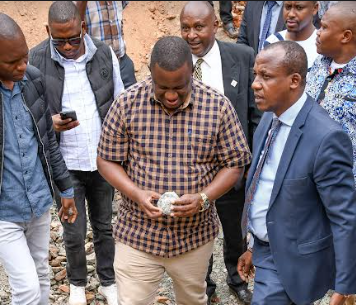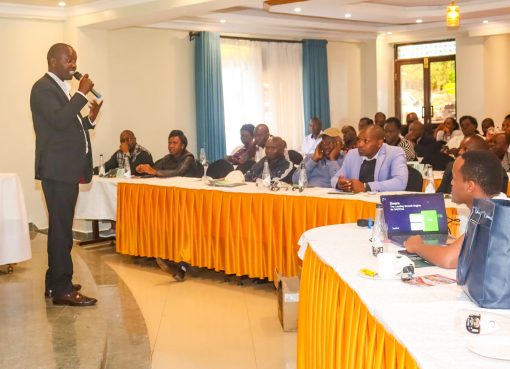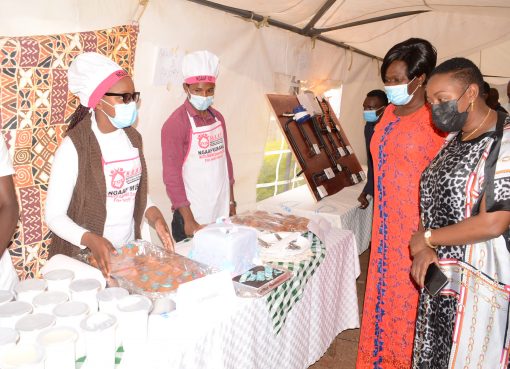The government will establish transit check points to verify the containers transporting minerals along the way and at the Mombasa port, Cabinet Secretary for Mining, Blue Economy, and Maritime Affairs Salim Mvurya has said.
Speaking in Mbuvo, Makueni Sub County, Wednesday, Mvurya said the move is among a raft of new measures introduced by the ministry to tame illegal mining and loss of revenue.
“Apart from closing the illegal mine sites, we are also introducing transit checks where containers of minerals will be sealed and also cross-checked along the way before they reach the port of Mombasa,” said Mvurya.
He said the ministry is committed to streamlining the mining sector, including geospatial surveys of minerals, a seamless licensing process, and empowering artisanal miners.
“This visit to Makueni today is informed by a follow-up of the geo-survey report that we did across the country. The county has 12 mineral occurrences with dominant minerals including copper, manganese, graphite, and iron ore,” noted Mvurya.
The CS added that Makueni is one of the counties that will soon embark on a ground truthing exercise to classify each distinct sample.
“And therefore, this is part of the preparations for a ground truthing exercise. Because once you get the occurrences, then the next level is to do ground truthing,” he added.
He said the ministry has also embarked on a process of enlisting artisanal miners and urging them to form cooperative societies.
“We’ll be working together with county governments to make sure that all artisanal miners are enlisted in a cooperative society so that we are now able to plan training and link them to financial institutions so that that business can then be lucrative,” said Mvurya.
“And I’m happy that we’ve already gazetted the Makueni Artisanal Mining Committee, so that we are now able to issue permits for small-scale mining activities,” he added.
He said the government approved the establishment of mineral value addition centres to create jobs and boost revenue.
“We are going to address sharing framework issues so that when mining is done in an area, 70 per cent goes to the national government, 20 per cent to the county, 10 per cent to the local community, and there’s a further 1 per cent which remains in the community for community projects,” noted Mvurya.
He was accompanied by CS for Tourism, Wildlife, and Heritage Peninah Malonza, Makueni County Commissioner Wiliam Kaimba, and Governor Mutula Kilonzo Jr.
By Ronald Rono




